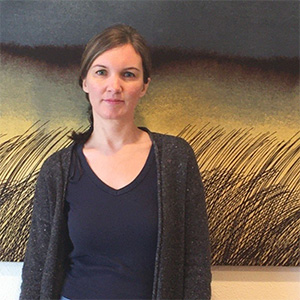IBM Announces Granite 4.0
IBM has introduced Granite 4.0, initiating a new era for its enterprise-focused family of large language models. This latest release builds on architectural innovations that strengthen IBM’s strategy of developing smaller, more efficient models that deliver strong performance while lowering costs and latency. Granite 4.0 is designed with a focus on key tasks that support agentic workflows, making it useful both as a standalone solution and as a cost-effective component within larger reasoning models
Here’s the key info, at a glance:
- IBM is launching Granite 4, the next generation of IBM language models. Granite 4.0 features a new hybrid Mamba/transformer architecture that greatly reduces memory requirements without sacrificing performance. They can be run on significantly cheaper GPUs and at significantly reduced costs compared to conventional LLMs.
- These new Granite 4.0 offerings, open sourced under a standard Apache 2.0 license, are the world’s first open models to receive ISO 42001 certification and are cryptographically signed, confirming their adherence to internationally recognized best practices for security, governance and transparency.
- Granite 4.0 models are available on IBM watsonx.ai, as well as through platform partners including (in alphabetical order) Dell Technologies on Dell Pro AI Studio and Dell Enterprise Hub, Docker Hub, Hugging Face, Kaggle, LM Studio, NVIDIA NIM, Ollama, OPAQUE and Replicate. Access through Amazon SageMaker JumpStart and Microsoft Azure AI Foundry is coming soon.
Source: IBM
Free (Cybersecurity) Labs!
Kev Milne, Cyber Threat Intelligence Manager at NatWest Bank, and one of the few professionals focused on mainframe penetration (pen) testing, has created some free labs for anyone to use on Mainframe, Password Cracking, Linux, CICS, and Buffer Overflows. Head on over, learn and enjoy! Labs are completely online – no login required.
Milne recently completed chapter 8 (Gaining Access) of his book ‘Hacking Mainframes’ for No Starch Press and recognized the need for accessible labs for everyone. In particular, he has focused on updating the labs related to password cracking and buffer overflows in COBOL.
The updated labs include:
- Mainframe Simulator Lab
- Linux Basics Lab
- A new lab on CICS featuring the #hack3270 tool
These resources are designed to enhance learning and provide hands-on experience. Milne also has many more labs in the cyber-coach app, covering everything from Cyber Threat Intelligence, red team, blue team, IBM mainframes and more.
If you’re unfamiliar with Kev Milne, check out the second episode of The Mainframe Book Club, in which host Andrew (Andy) McCandless talks with Milne about his work.
Upcoming IBM Z Day
Mark your calendar for the next IBM Z Day on 12 November 2025. IBM Z Day is a free one-day enterprise computing virtual conference for anyone and everyone! Hear the latest about IBM Z and LinuxONE, and join the lineup of global thought leaders who will highlight industry trends and innovation spanning AI, Hybrid Cloud, Quantum-Safe Security, and more!
Register today to secure your spot!
Chase Card Decommissioning All Mainframe Code, with AI Assistance
Roman Eisenberg, head of technology for Chase card and connected commerce at JPMorgan Chase, shared with CIO Dive, that the company is eliminating all legacy mainframe code. Over time, however, the mainframe infrastructure made it harder to innovate. Chase was also grappling with skills gaps, making it difficult to maintain let alone expand capabilities.
While initially skeptical about including AI as part of platform modernization efforts, Eisenberg and his team were able to allay concerns through robust governance and guardrails. The stakes are high for modernization projects, but success is hard to come by.
The majority of legacy tech upgrades fail initially, and more than half contend with the stalling of broader digital transformation initiatives, according to a Forrester survey. Mainframe skills gaps, complex integration strategies and inadequate tools are all to blame for misfires.
“We cannot make mistakes,” Eisenberg said. “You have to move fast, but you absolutely have to minimize any chance of breaking things because it’s how people buy groceries and pay for childcare.” Chase card teams have been using the process for about a year and are likely to continue into the foreseeable future.
“It will end when we decommission the last line of mainframe code,” Eisenberg said.
Source: CIO Dive
IBM z/OS Core Collection v1.15.0 GA Released
IBM has announced that the new Core collection version v1.15.0 GA is available on Ansible Automation Platform, Ansible Galaxy, and Github!
This release includes a brand new module zos_replace that replaces occurrences of a text in USS files and data sets. Using the power of regular expressions or just literals you can find any text in the content or a part of it to be replaced.
Key updates include support for encoding files during archiving and unarchiving in zos_archive and zos_unarchive, improved GDG generation name preservation and alias support in zos_copy, and expanded capabilities in zos_find, zos_stat, and zos_mvs_raw for locating and managing migrated data sets. The release also introduces adds support for special characters like the British pound (£) when using zos_copy. Bug fixes address issues across modules such as zos_backup_restore, zos_data_set, and zos_fetch, ensuring more reliable behavior when working with backups, volumes, and permissions.
You can read more in the release blog.





0 Comments